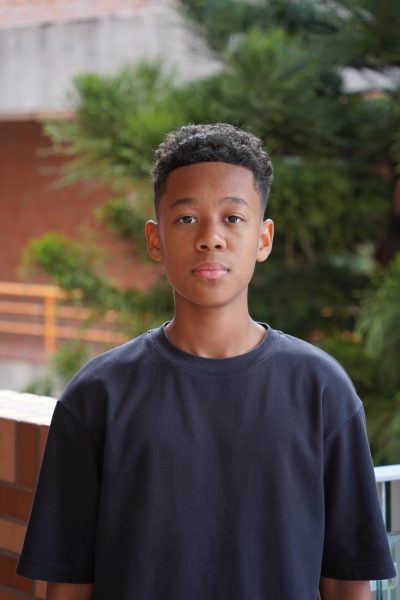Does the race to be the best drive students to succeed, or push them toward burnout?
In many high-achieving schools, students overload their schedules with advanced classes and extracurriculars to try to get an edge on one another. While this competitive culture can motivate students, it often leads many students to harmful consequences like stress, burnout and even health issues. For instance, students who take on too many Advanced Placement (AP) or International Baccalaureate (IB) classes may sacrifice sleep and personal time to complete their workload, leading to devastating consequences. Over time, their academic focus and motivation can also decline, the opposite of what they initially hope to achieve.
At Taipei American School (TAS), the competitive culture is particularly evident in the college application process. Unlike many schools, TAS does not put a limit on the number of colleges a student can apply to. While this does give the students freedom, it creates an atmosphere of competitive pressure to apply to an excessive number of schools, sometimes up to two times the recommended amount. To address this, TAS has implemented a number of strategies and workshops to help minimize the stress of college applications. For example, TAS provides detailed calendars with application deadlines and essay feedback dates to improve organization. In addition to those resources, the school emphasizes the importance of support systems. Students have the opportunity to schedule meetings with their personal and college counselors. They are free to use that time to work on college applications or simply discuss personal and academic concerns.
To reduce stress, TAS actively encourages students to avoid comparing college lists, SAT scores, or GPAs with one another. The school also offers tools such as the “Balance of Life” worksheet and holds discussions with students and parents about course selections, aiming to balance school schedules. In order to set realistic goals for themselves, Mr. Haynes, the Director of Upper School Personal and Academic Counselling encourages students to reach out to their Personal and Academic Counselors, College Counselors, teachers, advisors, for advice/suggestions. “Students don’t need to do everything to be successful, it’s better to do less and do those things really well.”
From a student point of view, the level of competition is pretty high, with much of the pressures stemming from traditional Taiwanese views. For instance in Taiwan people believe that education is highly valued, a lot of high expectations are set from parents whose expectations were also set by their parents, creating a domino effect. And success in Taiwan is often measured by important exams and tests which will decide one’s future (at least in traditional, local schools and universities). But that’s not how it works in the United States at all, so there’s often a disconnect between what families may understand about achievement here versus holistic review and admissions elsewhere, which places value on things like character, compassion, and community membership. Students should strive to balance competitiveness with personal well-being during the college application process, “it’s best to plan ahead and not talk to their peers about where they are applying, thinking about what they want about themselves, not your parents, grandparents, or friends,” Ms. Hamre, the Counseling Director of Upper School, said. “It’s up to you to determine your worth and happiness, and take time to really reflect. Because this is the moment in your life where you’re starting to become more in control of your education, and your voice is really important.”
Many students cope with stress by finding healthy solutions, “I manage my stress by playing music, hitting the gym, and playing tennis. I try to move away from school related things,” Alex K. (‘25 ), a senior involved in numerous activities, said: “These strategies not only help students recharge but also foster a sense of balance in their lives, reducing the toxic effects of competition.
At this time, in the race to achieve success, students have to keep in mind that health and well-being should also be prioritized alongside academic achievement. Schools like TAS have introduced some measures in order to help nurture children through these things, but much more can be done to mitigate competition. As Theodore Roosevelt wisely said,”Comparison is the thief of joy.” Through personal growth and healthy competition, students will enjoy their school lives much more without compromising mental and physical health.

![[PHOTO COURTESY OF PIXABAY]](https://blueandgoldonline.org/wp-content/uploads/2025/01/student-849821_1280-1200x837.jpg)
![A myriad of impressive trophies and awards. [ANNABELLE HSU/THE BLUE & GOLD]](https://blueandgoldonline.org/wp-content/uploads/2025/09/Awards2-1200x512.jpeg)
![Students' calendars say goodbye to exam week. [ANNABELLE HSU/THE BLUE & GOLD]](https://blueandgoldonline.org/wp-content/uploads/2025/09/Exam-week-1200x740.jpg)
![A collection of college flags. [PHOTO COURTESY OF AMBER HU ('27)]](https://blueandgoldonline.org/wp-content/uploads/2025/05/IMG_5029-1200x577.jpeg)

![An SAT word cloud. [PHOTO COURTESY OF WORDCLOUDS]](https://blueandgoldonline.org/wp-content/uploads/2025/05/SAT.jpeg)
![Collage of banned books, including “The Handmaid’s Tale” by Margaret Atwood. [MINSUN KIM/ THE BLUE & GOLD]](https://blueandgoldonline.org/wp-content/uploads/2025/04/IMG_4274-1200x681.jpeg)
